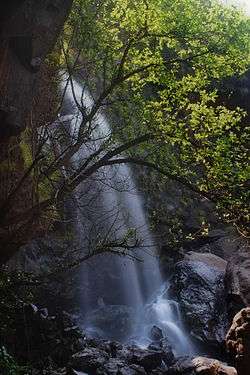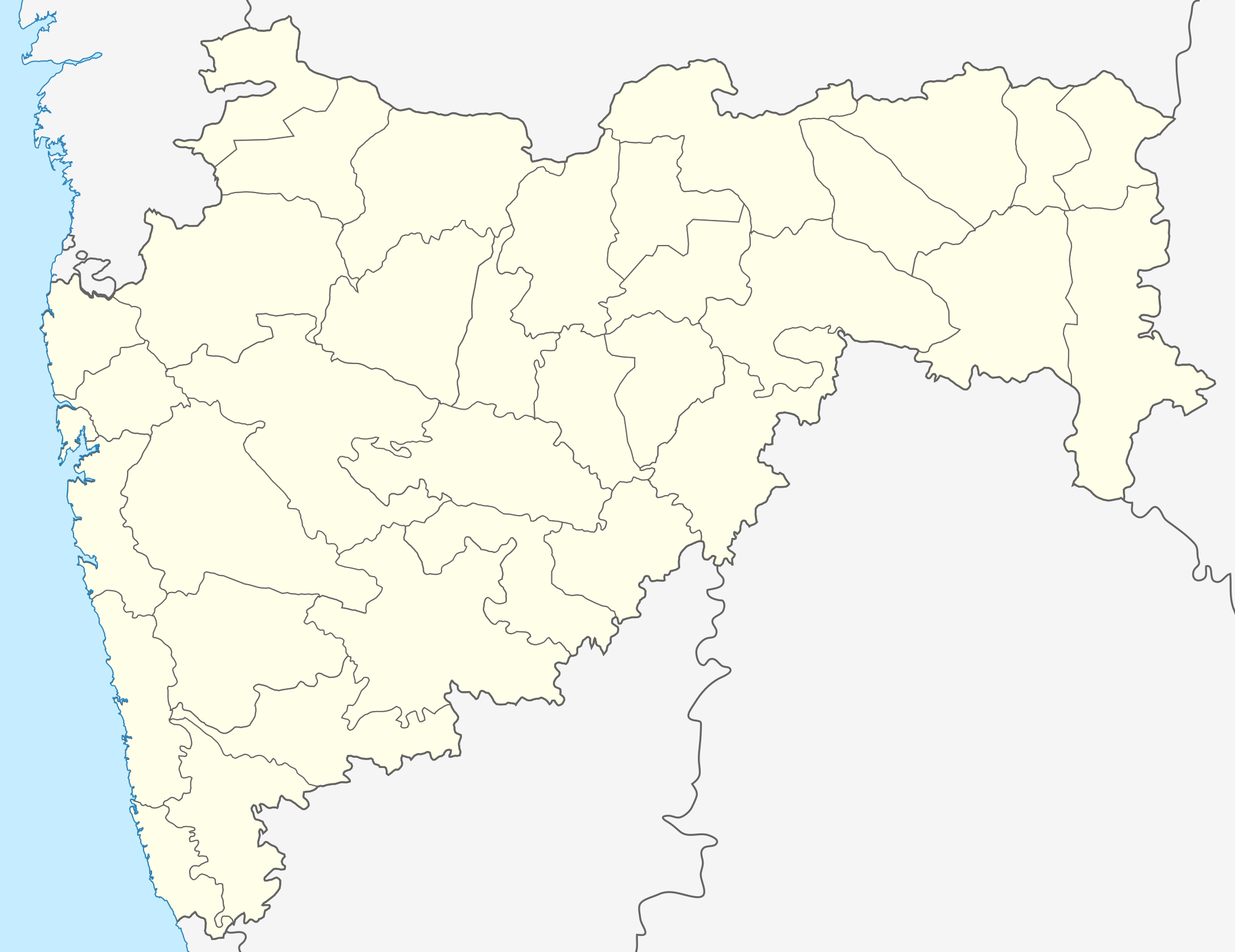Shivthar Ghal
| Shivthar Ghal Sundarmath | |
|---|---|
| Village | |
 Waterfall at Shivtar Ghal | |
 Shivthar Ghal Location in Maharashtra, India | |
| Coordinates: 18°09′N 73°37′E / 18.15°N 73.62°ECoordinates: 18°09′N 73°37′E / 18.15°N 73.62°E | |
| Country |
|
| State | Maharashtra |
| District | Raigad |
| Languages | |
| • Official | Marathi |
| Time zone | UTC+5:30 (IST) |
| Vehicle registration | MH-06 |
Shivthar Ghal, also known as Sundarmath, (Sundarmath means Beautiful Monastery), is a cave, about 34 km from Mahad, near Barasgaon, Maharashtra, India. Samarth Ramdas dictated Dasbodh to Kalyan Swami. Samarth Ramdas lived here for about 22 years. It is believed that this is where the first meeting between Shivaji Maharaj and Samarth Ramdas took place.
The cave was discovered by Shri Shankarrao Deo of Dhule in 1930. The cave and surrounding area was renovated after Samarth Seva Mandal was formed in 1950. The campus includes the actual cave under the waterfall, Ramdas Swami temple, dining hall and accommodation. Between 12:00 pm and 1:30 pm, the visitors can have the prasad consisting of Moong Dal Khichadi and Shira. Shivthar Ghal Sundarmath Seva Samiti organizes various programs at this location. It was rediscovered by Shankar Shrikrishna Deo.
Shivthar Ghal is located in Varandha Ghat in the Sahyadris on the Bhor-Mahad road.
In monsoons, a waterfall falls in front of the cave.
Notes
There are 5 to 6 small family restaurants between the parking lot and the ghal entrance 50 meters away. One can stay in the Shivthal Ghal trust's hall or there is also a Zilla Parishad guest house within walking distance with food and stay arrangement. The ghal can be approached direct from Varandha Ghat ( by those coming from Pune-Bhor) by a not so good 7-8 km road via Parmachi village, through a good jungle. As of Sept 2015 the road from Bhor to Varandha ghat is not so good but usable at moderate speeds. The facilities at the Ghal is run by senior citizens who volunteer for a month at a time.
References
- Gunaji, Milind (2010), Offbeat Tracks in Maharashtra (2 ed.), Mumbai, India: Popular Prakashan, p. 250, ISBN 978-81-7991-578-3
| Wikimedia Commons has media related to Shivthar Ghal. |